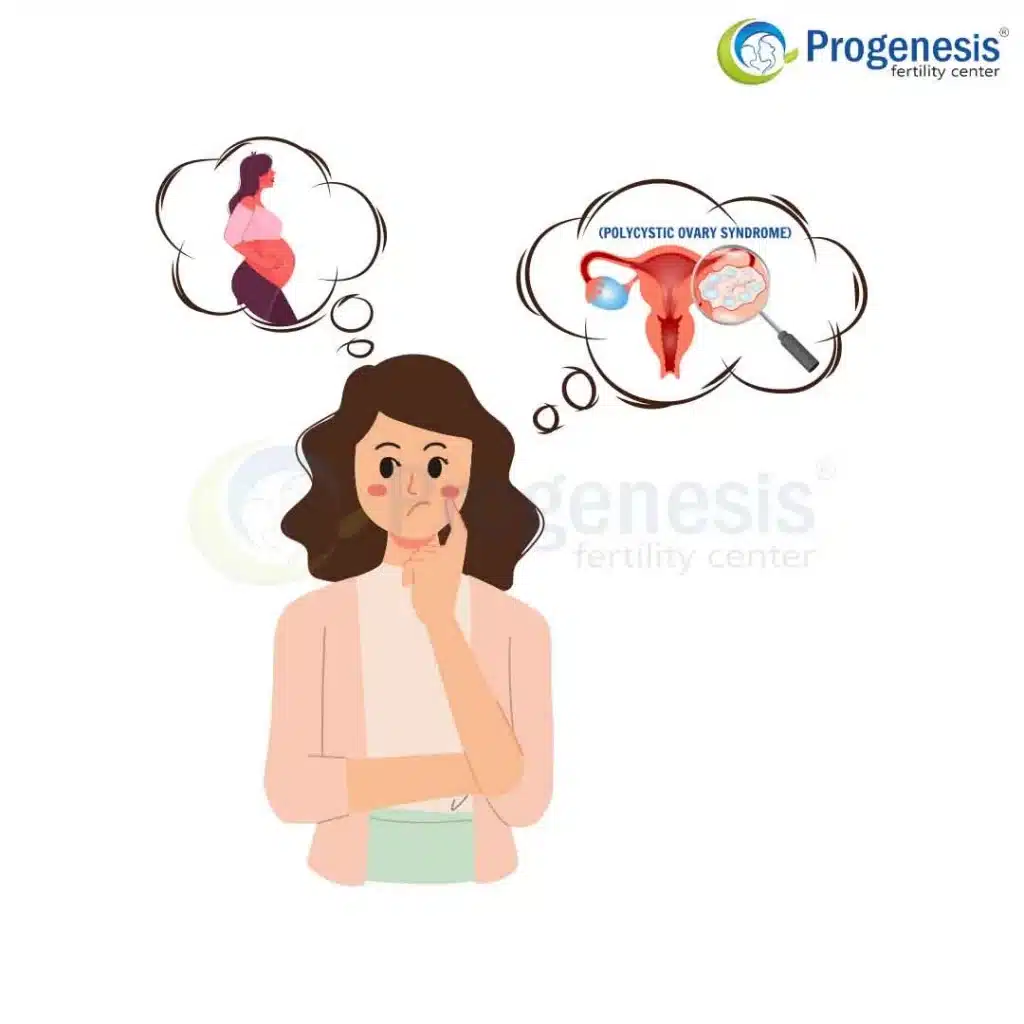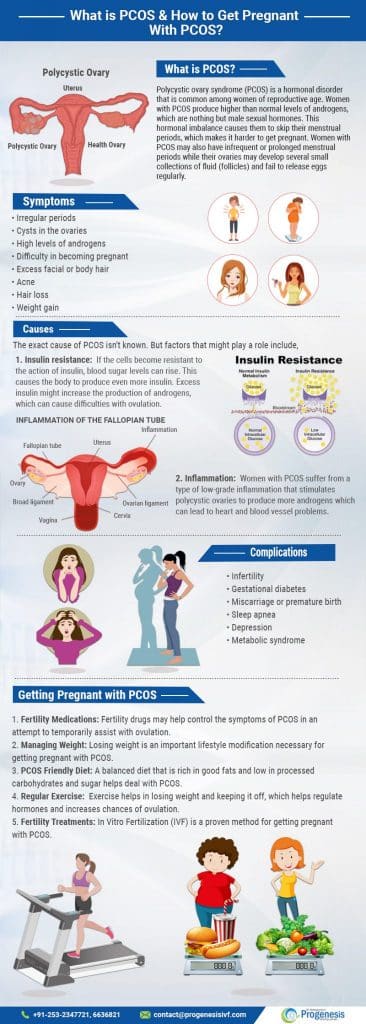PCOS is a hormonal imbalance caused by your ovaries producing too many hormones. This creates an imbalance in your reproductive hormones. As a result, PCOS patients frequently experience irregular menstrual cycles, missed periods, and uncertain ovulation.
Table of Contents
Causes of polycystic ovary syndrome
- Increased levels male hormones
- Insulin resistance

Does PCOS affect egg quality?
Women with PCOS have plenty of good eggs. However, as with all women, aging causes a decline in egg quality and number. PCOS patients have lower development capacity for oocytes and high-quality embryos than non-PCOS patients, after a certain age. As a result, the timing of starting a family is critical, and a delay in conception due to PCOS can interfere with potential child bearing plans.
How to increase fertility during a PCOD problem?
- Usage of Medications
- Keep a healthy weight
- Reduce your stress levels
Best age to get pregnant with PCOS
When ovulation is normal and there are no other reproductive issues, women with PCOS have the best chances of becoming pregnant naturally, before the age of 35. If your body mass index (BMI) and other metabolic and hormonal factors are in control, conception may occur within a year.
PCOS Treatments
You can experience difficulty conceiving if you have PCOS. Fortunately, most people with PCOS can conceive with lifestyle adjustments or infertility treatment.
- Lifestyle changes
- Medication
- IVF
In vitro fertilization (IVF) is one of the methods available to help people with fertility issues conceive a baby. To get specific treatment for the situation at hand, go to your doctor or a reproductive specialist.
Success rate of pregnancy with PCOS?
Women with PCOS who ovulate between 75% and 80% after taking Clomiphene citrate (CC), have been observed to have had a conception rate of 22% each cycle. It is believed that the anti-oestrogenic impact of CC on endometrial receptivity and cervical function is what causes the difference in ovulation and conception rates. (Source: national institute of health)
Precautions to take during pregnancy with PCOS
- Women with PCOS who are expecting should regularly exercise and keep an eye on their weight and blood sugar levels. Consuming foods high in protein can assist to keep blood sugar levels stable. A balanced diet that includes whole grains, high fiber, and low carbs is also vital.
- Caffeine, nicotine, and alcohol should be avoided.
- Prenatal vitamins, regular medical examinations, and blood pressure checks all contribute to a pregnant PCOS woman’s safety.

FAQ’s
Is pcos pregnancy normal?
6 to 15% of women in the world who are of reproductive age suffer with polycystic ovary syndrome. It is linked to a higher risk of miscarriage, gestational diabetes, hypertensive problems during pregnancy, preterm delivery, and the birth of small for gestational age babies.
What is a bilateral polycystic ovarian disease ?
Bilateral PCOS affects both ovaries and is the same as the conventional Polycystic Ovarian Syndrome.
What are the symptoms of PCOD ?
PCOD results in irregular periods, heavy or delayed menstrual bleeding, dark pigmentation of the skin, particularly beneath the breasts, on the groin, or on the neck, acne on the face, back, or chest, hair loss on the scalp or thinning hair, and excessive growth of back hair.
When to see a fertility doctor for your PCOD problem ?
If you have PCOS and are having trouble getting pregnant, you should contact your GP or a reproductive specialist to have your problems looked into.
